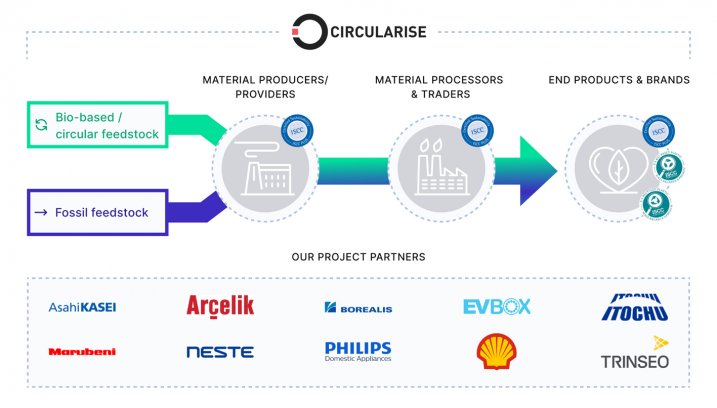

Asahi
Fiber producer Asahi Kasei Europe has joined a pioneering project on blockchain technology for the ISCC PLUS certification program.
The project, which is being led by the Dutch software company Circularise and the Japanese trading firm Marubeni, aims to improve the effectiveness of the certification process and the consistency of the certified data.
Asahi Kasei is currently boosting efforts related to the use of bio-based and recyclable materials, as well as renewable energy sources, in order to realize its objective of becoming carbon neutral by 2050.
The business is accelerating up the certification of its more sustainable materials in response to the shifting demands of the customers in order to provide complete reliability and transparency.
The ISCC PLUS certification is a top-tier international certification program that uses mass balance management to connect the supply chain from raw materials like biomass feedstock and recycled materials to completed goods. This aids in ensuring that the final items are completely transparent to the consumer. Asahi Kasei Europe made the decision to take part in the pilot project because it recognized the growing significance of certification dependability and process efficiency.
Akira Nishizawa, managing director of Asahi Kasei Europe, said that they aspire to contribute to a sustainable society through their business. The ISCC PLUS mass balancing accreditation is becoming more significant to them as a provider of plastics, fibers, and synthetic rubber.
In addition to the project’s leader, Circularise, ten businesses from every link in the supply chain—including producers of chemicals, traders, and consumer electronics—participated in the endeavor. The Circularise software was used to administer the mass balances for the ISCC PLUS certification, and the ten companies tested the system’s efficiency as well as the material traceability and data accuracy during trial runs.
The trials’ findings demonstrated that, in addition to the system’s effectiveness, the use of blockchain technology assures complete data reliability, optimal mass balance management, and absolute confidentiality in the data transmission process throughout the whole supply chain.
Nishizawa added that many of their products are currently undergoing the ISCC PLUS certification procedure. The certification process has to be made more effective because it still requires a lot of work and time. They have discovered that digital technology can significantly contribute to this process.
Ambercycle and Highsun Holding Group have signed a strategic cooperation agreement aimed at advancing textile-to-textile (T2T) closed-loop recycling systems.
PAIGE has partnered with the Cotton Lives On programme to launch a recycling campaign, encouraging customers to bring in old…
Toray Industries Inc. from Japan, has partnered with Head Sports GmbH to create the Boom Raw tennis racquet, a product…
Icon Denim LA is expanding its collection made entirely from organic cotton. The brand first introduced its 100% organic cotton…
EURATEX has signed a MoU with Tunisia’s textile trade union, FTTH, to strengthen collaboration in areas like innovation, sustainability, and…
Brightfiber Textiles has opened a new recycling plant in Amsterdam, turning locally collected secondhand clothes into high-quality textile fibres.